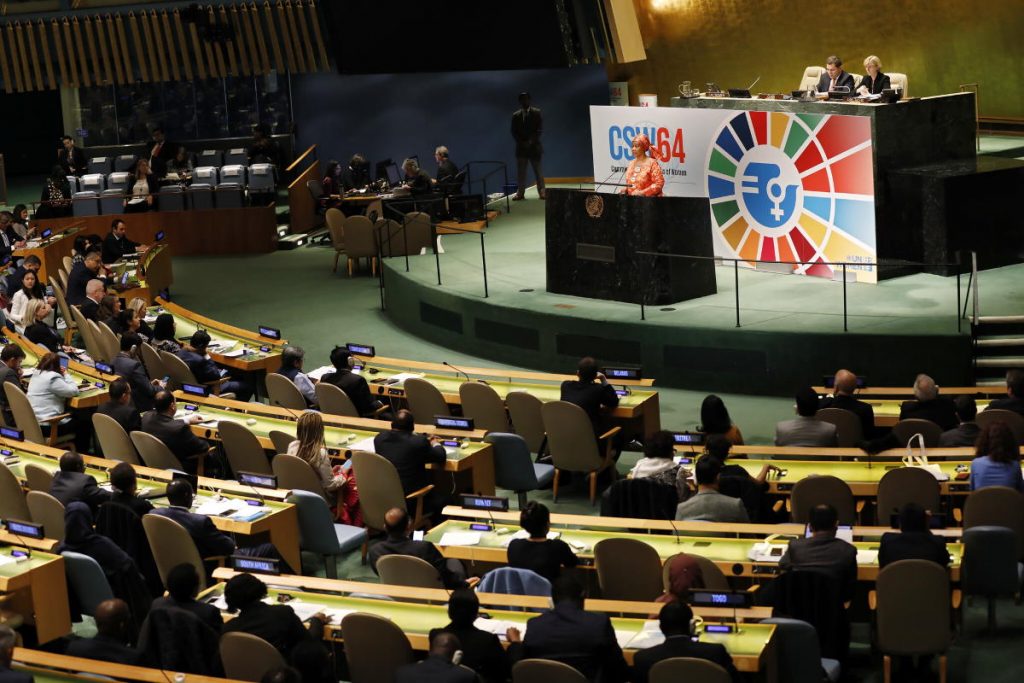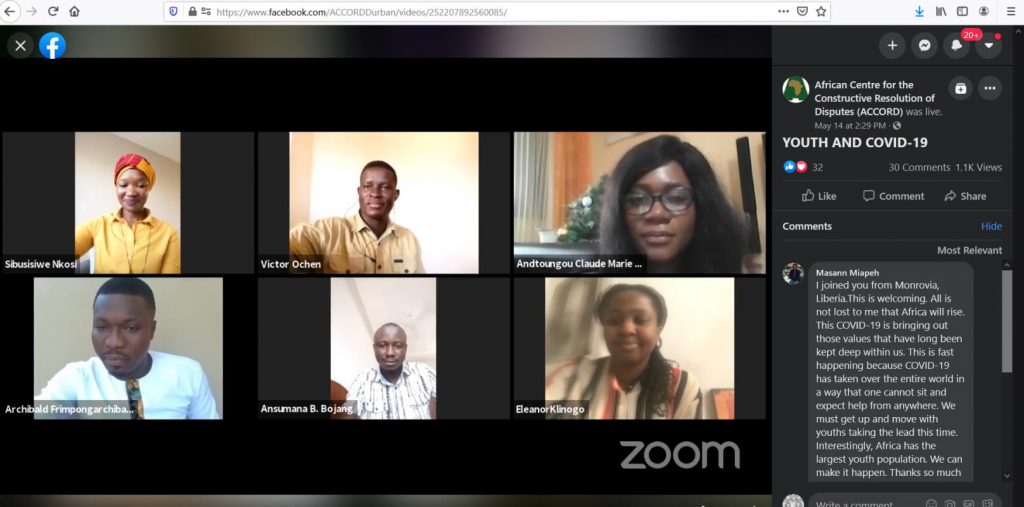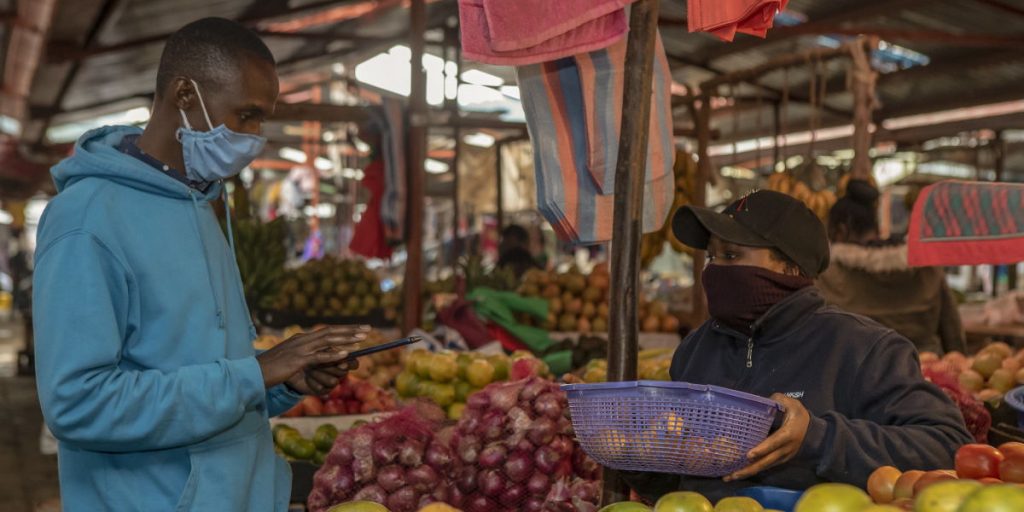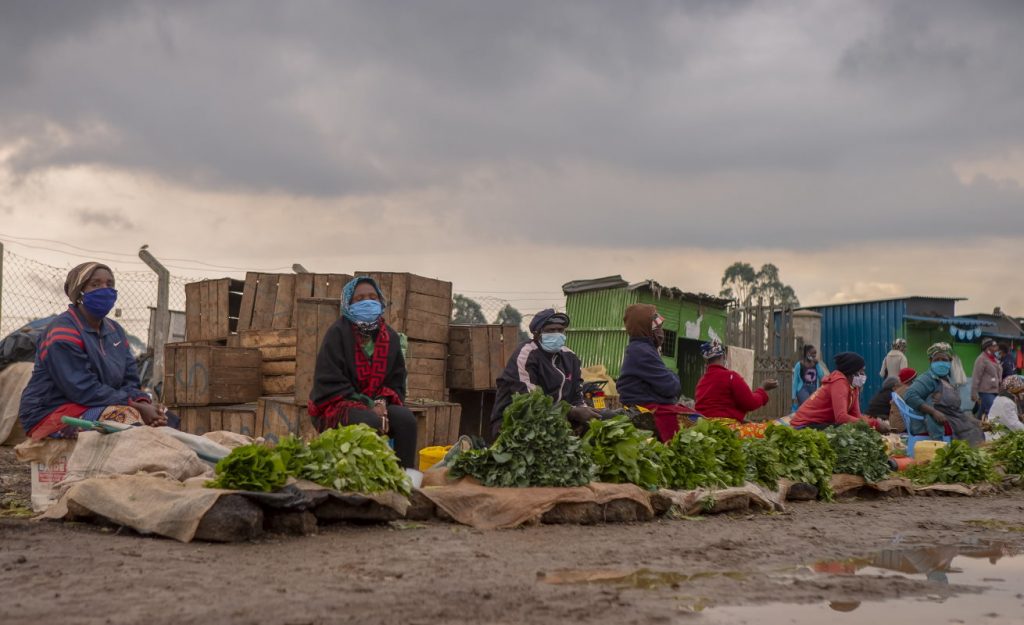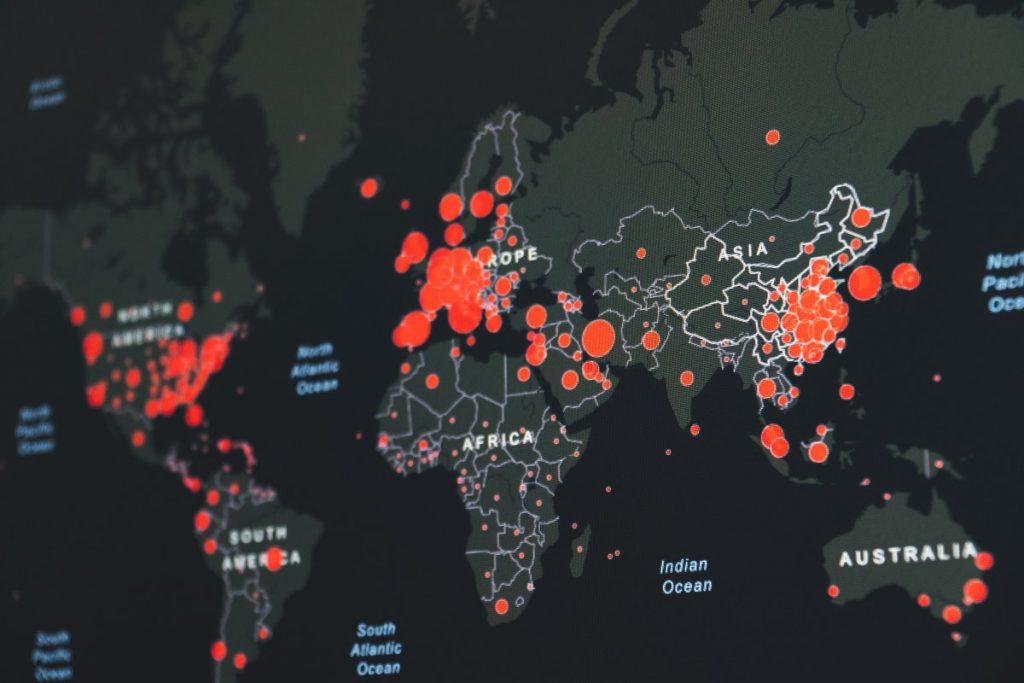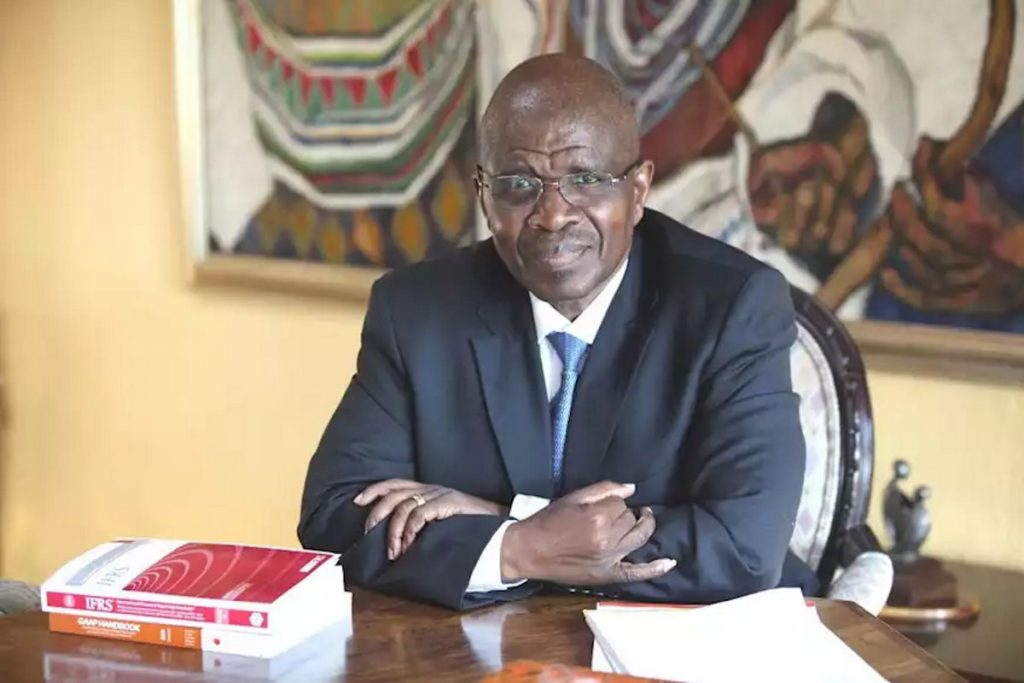ACCORD Programme
COVID-19 & Conflict
ACCORD has rapidly adapted to the new COVID-19 reality and has refocused and restructured a significant proportion of its staff and effort on identifying & monitoring, tracking & analysing, and preparing & responding to COVID-19 related social unrest and violent conflict in Africa.
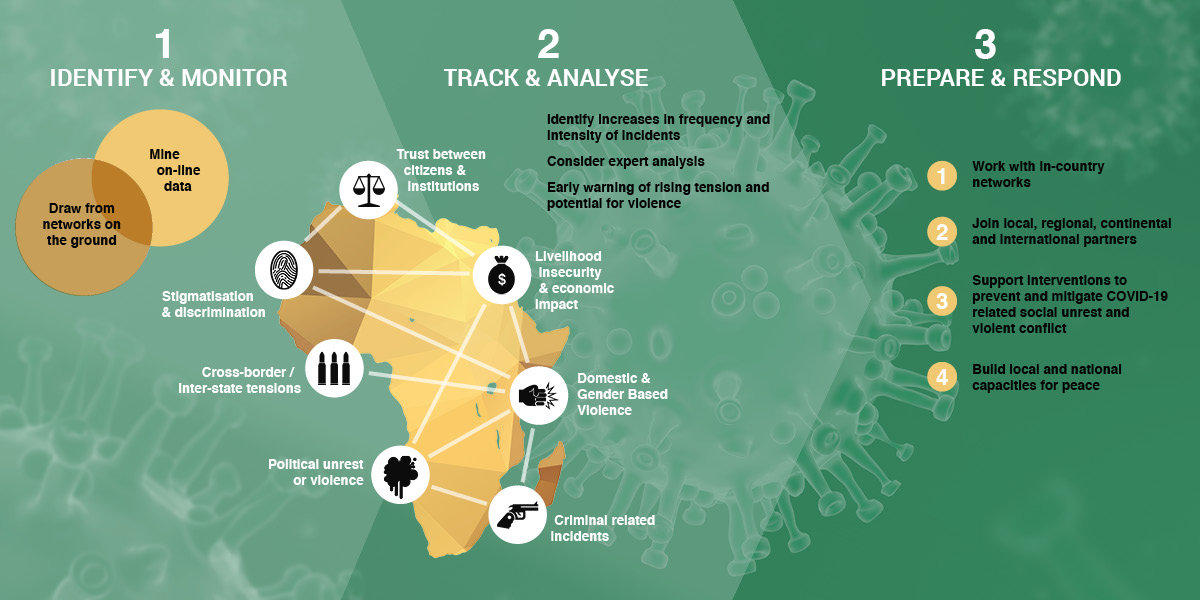
ACCORD’s focus on COVID-19
ACCORD has adapted to the new COVID-19 reality, refocusing and restructuring a significant proportion of its staff and its effort on identifying & monitoring, tracking &, analysing, and preparing & responding to COVID-19 related social-unrest and violent conflict in Africa.
Through our networks across Africa, and supported by available online data, ACCORD identifies COVID-19 related incidents and trends that may provide early warning of rising tensions that could develop into social unrest and violent conflict. Once the incidents are captured in the dataset, ACCORD analyses the trends and publishes a weekly COVID-19 Africa Conflict and Resilience Monitor, in order to share the information and analysis with all stakeholders.
ACCORD then works with its in-country networks and other local, regional, continental and international partners and stakeholders, to encourage and support interventions aimed at mitigating, and where possible preventing, COVID-19 related social unrest and violent conflict.
Conflict & Resilience Monitor
1 Jul 2025
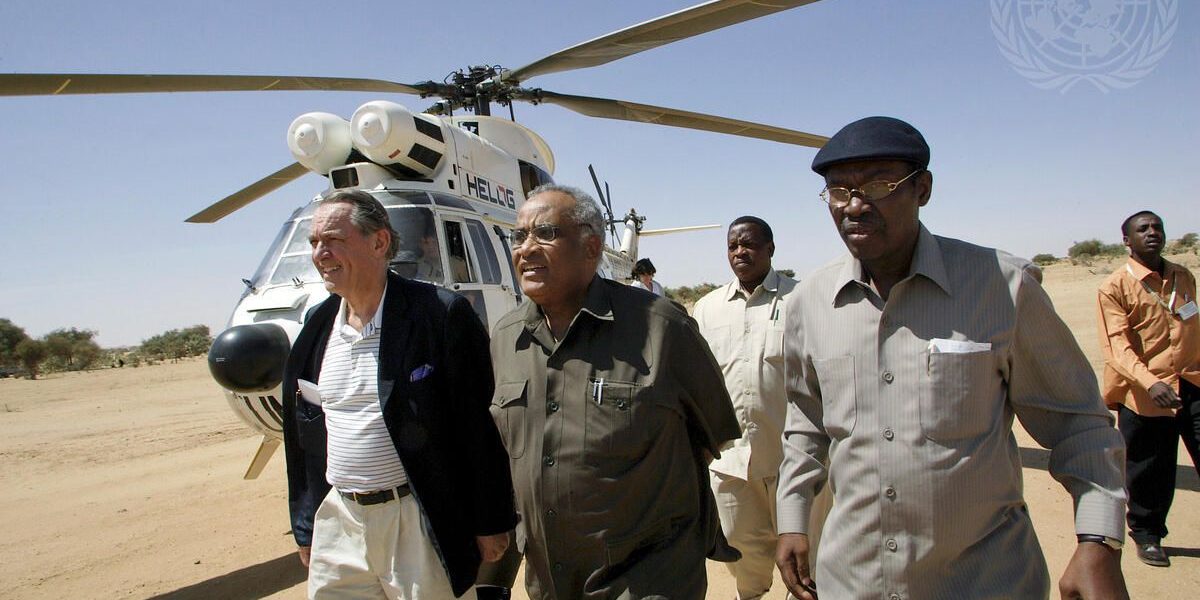
This month’s monitor begins with an article from Ambassador Said Djinnit, Dr Ibrahim Assane Mayaki and former SRSG El-Ghassim Wane. In their article they discuss the lessons the African Union (AU) can draw from the way the Organisation of African Unity (OAU) responded in 1990 to the end of the Cold War. They argue that the contemporary changes to the global multilateral order presents an opportunity to strengthen African unity and integration, by building on and implementing the policy frameworks already adopted and established by the AU.
Following on, Prof Kwesi Aning writes about the political upheaval in West Africa and the effects this has had on the Economic Community of West African States (ECOWAS). Following coups in Burkina Faso, Mali and Niger, and their subsequent suspension from ECOWAS, the leaders of these states decided to withdraw from the bloc to form their own, the Alliance of Sahelian States. Prof Aning’s article discusses the impact this has had on the mandate of ECOWAS and the challenges to regional integration that the region now faces.
Keenan Govender’s article discusses the war economy in Sudan and its contribution to the perpetuation of the conflict. Beyond gold and oil, Sudan also exports large amounts of livestock and gum Arabic, a key ingredient in many products consumed everyday around the world. In his article he argues that the rest of the world, by turning a blind eye to the source of these products, participates in an exercise similar to the exploitation Africa experienced during the colonial period.
Finally, Boikanyo Nkwatle writes about Traorism fever and its impact on democracy in Africa. Captain Ibrahim Traore came to power in Burkina Faso via a coup d’état, but his seemingly effective governance style has earnt him praise from other leaders. However, as the article discusses, it is dangerous to forgo checks and balances of power for more governance efficiency.
Feature Articles



Africa at a Turing Point: Navigating Peril and Seizing Opportunity in a Changing Global Order
- Dr Ibrahim Assane Mayaki
- El-Ghassim Wane
- Ambassador Said Djinnit
The erosion of the multilateral system risks further marginalising African countries, exposing them to bilateral power dynamics in which their structural vulnerabilities leave them at a severe disadvantage

Tackling West Africa’s VE Crises in a Political and Security Vacuum
- Kwesi Aning
Fifty years after ECOWAS’s establishment in 1975, its integration processes are at risk of unravelling

Beyond Bullets and Borders: How Livestock and Gum Arabic are Financing Sudan’s War
- Keenan Govender
While much focus has been placed on the illicit flow of headline commodities like gold or oil, Sudan’s lesser-known exports of livestock and gum Arabic are quietly fuelling the war economy
COVID-19 News
An introduction to Novel coronavirus (2019-nCoV)
ACCORD is an African based global conflict management institution and think tank with nearly 30 years of experience.
The COVID-19 crisis had disrupted ACCORD’s usual work, but the Institution has rapidly adapted and it has now refocused and restructured a significant proportion of its staff and effort on identifying & monitoring, tracking &, analysing and responding to the COVID-19 related social-unrest and violent conflict in Africa.
Local Contact?
If you are able to share information from your experiences on the ground with the crisis in Africa, we'd really like to hear from you. Please get in touch!

